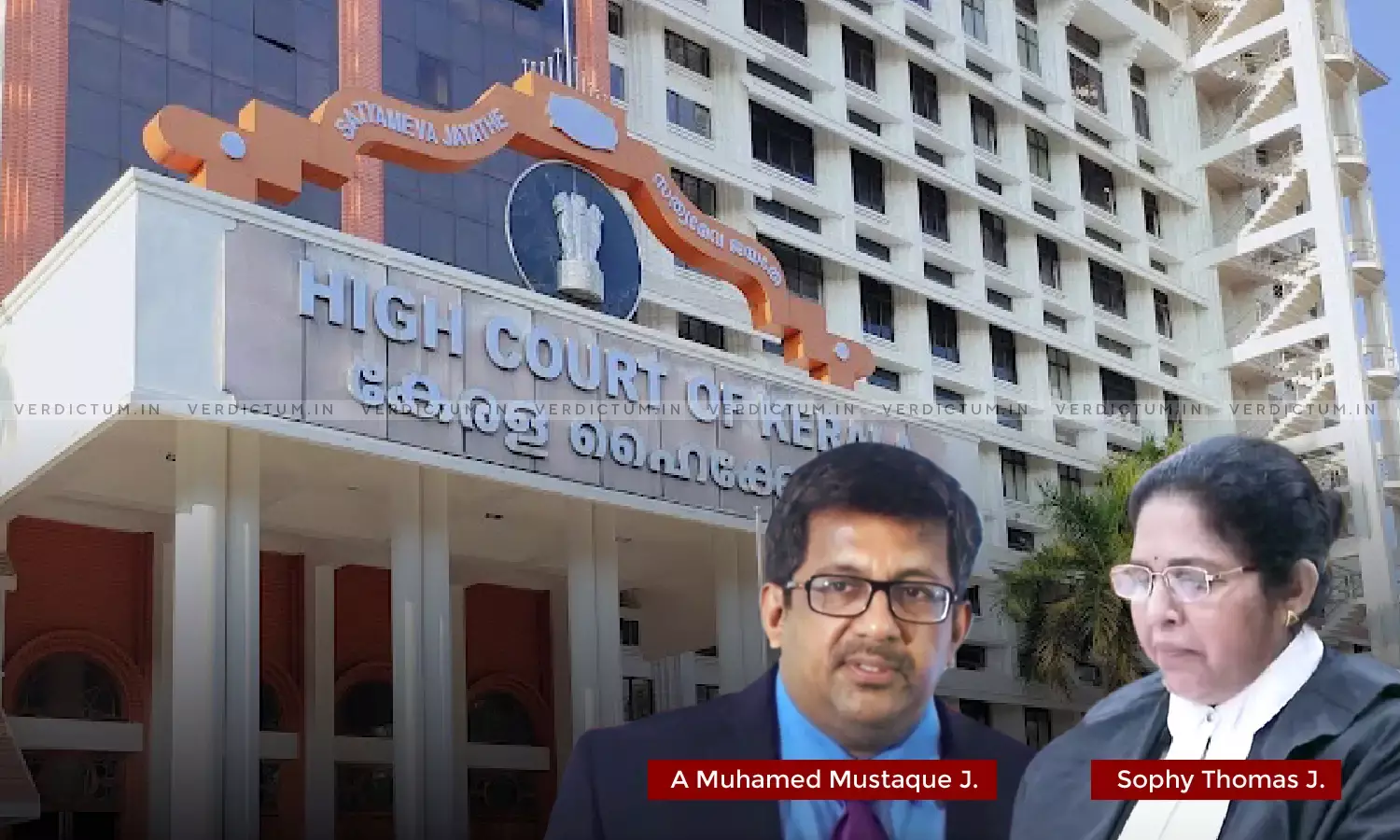Simply Because Woman Is Morally Bad In Societal Terms Does Not Necessarily Mean That She Is Bad For Her Child: Kerala HC
While explaining that the welfare aspect needs to be considered first in the matter of child custody, the Kerala High Court said that a mother may be morally bad in the societal sense, but that mother may be good for the child as far as the welfare of the child is concerned.
“A man or woman may be bad for someone in a contextual relationship,that does not necessarily mean that the person is bad for his/her child”, observed the Division Bench of Justice A. Muhamed Mustaque and Justice Sophy Thomas.
The Bench went on to state that so-called morality is created by the society based on its own ethos and norms and should not necessarily reflect in a contextual relationship between a parent and child.
Advocate K.S. Hariharaputhran appeared on behalf of the Petitioner, whereas Advocate Jose Antony appeared on behalf of the Respondent.
The facts of the case are that the Petitioner (mother) left the matrimonial home due to the strained relationship between her and the Respondent (father). On the other hand, the Respondent’s case was that the Petitioner eloped with another person. When the matter reached the Family Court, it was concluded that the Petitioner had eloped with another person for pleasure and that the wayward life chosen by her would prejudice the welfare of the children. Hence, the Petitioner had approached the High Court challenging the order passed by the Family Court allowing the custody of the minor child to the father.
After considering the submissions, the Bench termed the conclusion drawn by the Family Court that the Petitioner went for pleasure with someone else, merely because she was found in the company of another male, as erroneous.
The Bench held that such highly distasteful language used by the Family Court depicts the mindset of an officer of high rank in the district judiciary.
The High Court explained that there may be many circumstances when one may have to leave the matrimonial home, and simply because a woman is found with another person cannot lead to an assumption that she went for pleasure.
The moral judgment reflected in such orders would defeat the objective of inquiry in the matters of child custody, added the Court.
Elaborating that the mother's care for a child is being adored because the mother takes care of the child in her womb for nine months and she knows the pain and sufferings of delivery, the Bench pointed that the Court will have to examine how far the child is protected when custody is given to the mother or the father.
Therefore, observing that cyclical custody to parents would be in the best interest of both, the High Court granted custody of the child to the mother on alternate Fridays at 5 pm till the next Friday at 5 pm and directed that the child shall be handed over and returned from the premises of the FamilyCourt, Alappuzha.
Cause Title: Aneesa F. v. Shefeekmon
Click here to read/download the Judgment




